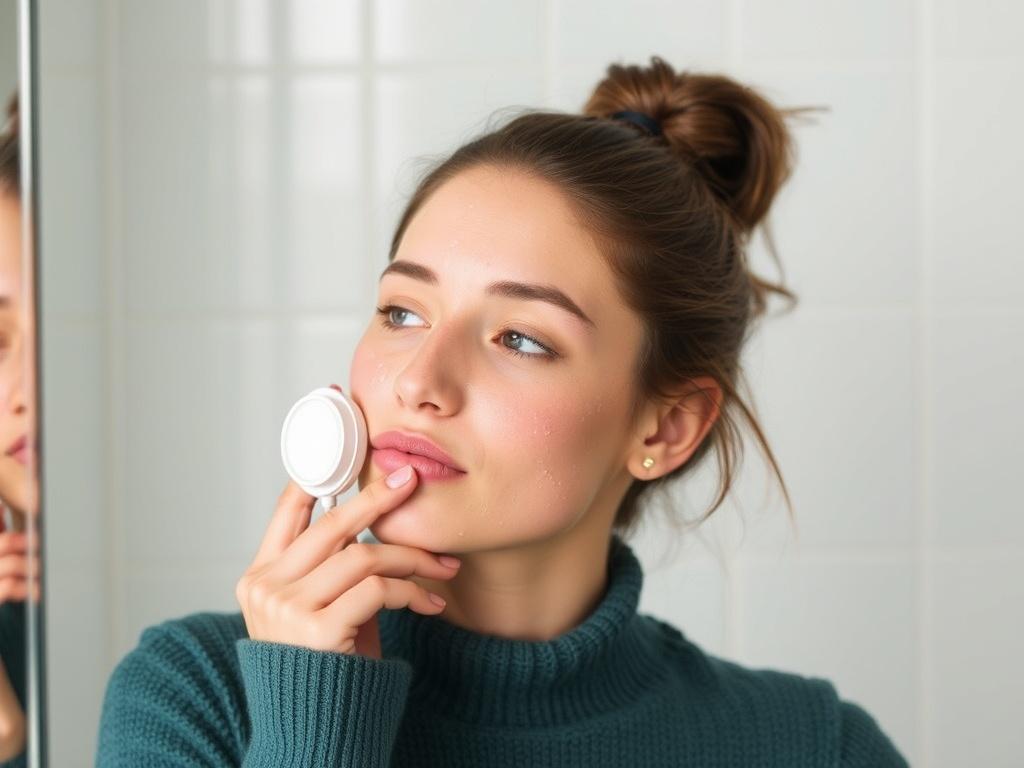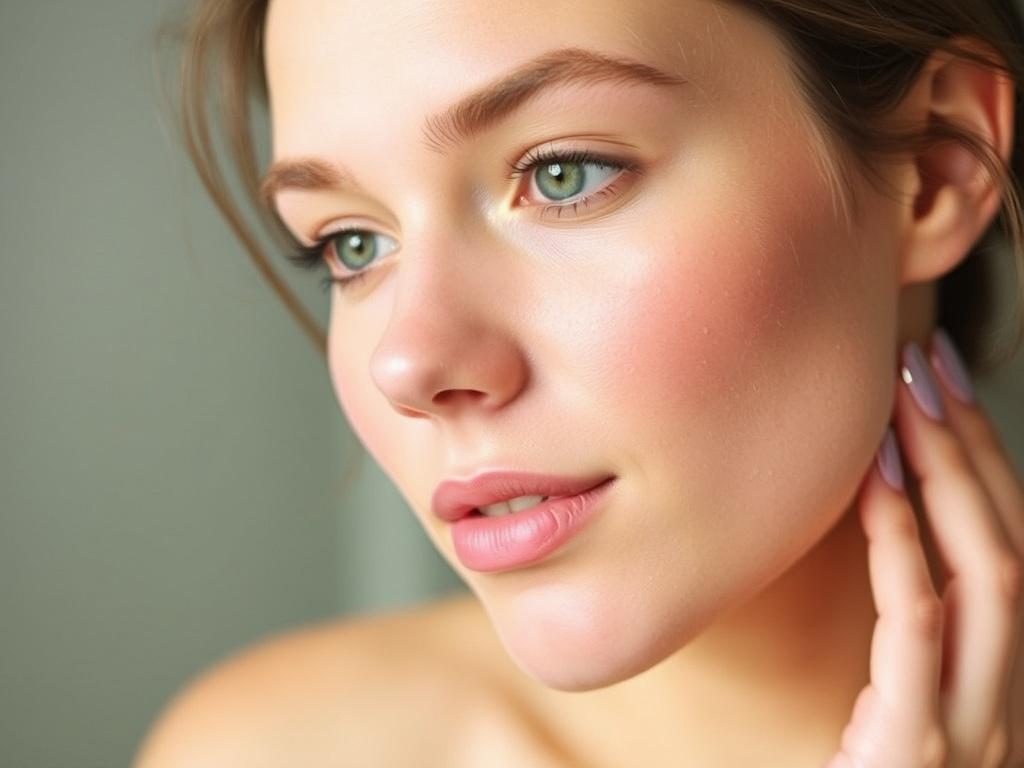Содержание статьи
- 1 The Myth That Acne Is Caused by Poor Hygiene
- 2 Myth: Popping Pimples Helps Them Heal Faster
- 3 The Role of Diet in Acne: Separating Fact from Fiction
- 4 Myth: Tanning Clears Up Acne
- 5 The Truth About Acne and Stress
- 6 The Myth That Only Teenagers Get Acne
- 7 Over-the-Counter Products Are Always Safe and Effective
- 8 The False Belief That Moisturizers Cause Acne
- 9 Myth: Natural Remedies Are Always Better for Acne
- 10 Understanding Hormonal Acne and How to Manage It
Acne is one of the most common skin concerns globally, affecting people of all ages. Despite its prevalence, there’s an overwhelming amount of misinformation swirling around acne, which can often make breakouts worse instead of better. Many myths and old wives’ tales claim to offer solutions, but following them without understanding the facts can lead you down a frustrating path. If you want to get your acne under control, the first step is to separate fact from fiction. This article will walk you through some of the most stubborn acne myths that might be sabotaging your skin and explain what you should really be doing to achieve clearer, healthier skin.
The Myth That Acne Is Caused by Poor Hygiene
It’s an easy mistake to believe that acne is simply the result of not washing your face enough. After all, dirt and oil clogging your pores make a lot of sense as the cause of breakouts. However, this myth can actually backfire, leading to skin irritation and worse acne symptoms. Over-washing your face strips skin of its natural oils, prompting your skin to produce even more oil (sebum), which can clog pores and cause more pimples.
What experts agree on is that gentle cleansing, usually twice a day, using a mild cleanser is enough to maintain skin health. Harsh scrubs, excessive washing, or rubbing your face vigorously don’t help and may make acne inflammation more intense.
How to Cleanse Properly
- Use lukewarm water instead of hot water to avoid skin irritation.
- Opt for a gentle, fragrance-free cleanser designed for acne-prone skin.
- Wash no more than twice a day, in the morning and before bed.
- Pat your face dry with a clean towel; avoid rubbing.
Myth: Popping Pimples Helps Them Heal Faster
The temptation to pop a pimple is irresistible for many, but this habit can actually worsen acne. Popping pimples forces bacteria and pus deeper into the skin, increases inflammation, and often leads to scarring. While it might offer immediate gratification by squeezing out the inflamed spot, the long-term consequences are not worth it.
Instead, it’s best to treat pimples with appropriate topical medications or simply leave them alone to heal naturally. If a pimple becomes painful and swollen, consulting a dermatologist is a better option than trying to manage it yourself.
The Role of Diet in Acne: Separating Fact from Fiction
There’s a lot of debate around whether certain foods cause or worsen acne, and unfortunately, many myths persist around this topic. Some people swear that chocolates, greasy foods, or junk food are the root causes of their breakouts, but the reality is more complex.
Recent research suggests that diet can influence acne for some people, but it is not the sole culprit. For example, high-glycemic foods—those that raise blood sugar quickly—may trigger acne by increasing inflammation and oil production. Dairy products have also been linked to acne flare-ups in some studies, though the evidence isn’t definitive.
Here’s a quick overview of foods commonly blamed for acne and what science currently says about them:
| Food Type | Common Acne Myth | Scientific Reality |
|---|---|---|
| Chocolate | Causes pimples and oily skin | May contribute in some people; no conclusive proof for everyone |
| Greasy/Processed Foods | Directly leads to acne | Can worsen inflammation but not a direct cause |
| Dairy (Milk, Cheese) | Triggers acne outbreaks | Some evidence suggests an association with hormonal acne |
| Fruits and Vegetables | Sometimes thought to cause skin issues | Generally beneficial, rich in antioxidants and vitamins |
If you suspect diet impacts your acne, a useful approach is to keep a food diary and note flare-ups, then discuss this with a dermatologist or nutritionist for personalized advice.
Myth: Tanning Clears Up Acne
Many people believe that sun exposure or tanning beds help clear up acne by drying out the skin and killing bacteria. This myth is particularly common due to the temporary improvement in inflammation that sometimes occurs after sun exposure. However, the truth is that tanning can do more harm than good to acne-prone skin.
Ultraviolet rays damage the skin, leading to increased cell turnover, dryness, and irritation, which can trigger more breakouts over time. Additionally, tanning increases the risk of skin aging and skin cancer. Fake tanning methods that clog pores can also aggravate acne.
Using a non-comedogenic, oil-free sunscreen daily is a far better approach to protect your skin without risking the harmful effects of the sun.
The Truth About Acne and Stress
Stress is often pointed to as a main cause of acne, but is this entirely accurate? Stress itself doesn’t directly cause acne, but it does influence factors like hormone levels, inflammation, and oil production that contribute to skin blemishes.
When you’re stressed, your body releases hormones such as cortisol that can trigger excess oil secretion. This can make acne flare-ups worse, especially if you are already prone to breakouts. Additionally, stress might worsen habits such as picking at the skin or neglecting proper skin care routines.
Incorporating stress-management techniques such as exercise, meditation, or good sleep hygiene can positively impact both your overall wellness and skin health.
Simple Tips to Manage Stress and Protect Your Skin
- Try deep-breathing exercises during stressful moments.
- Engage in regular physical activity to reduce cortisol levels.
- Maintain a consistent bedtime to improve sleep quality.
- Take brief breaks from screens and social media, which can heighten anxiety.
The Myth That Only Teenagers Get Acne
Acne isn’t just a teenage problem — it can affect people well into their adult years. Adult acne is actually quite common, especially among women who experience hormonal fluctuations related to the menstrual cycle, pregnancy, or conditions like polycystic ovary syndrome (PCOS).
Understanding that acne can persist beyond adolescence encourages treatment tailored to adult skin, which tends to be different in texture and behavior. Adult skin often requires gentler, more targeted skincare approaches because it can be more sensitive or prone to dryness.
Over-the-Counter Products Are Always Safe and Effective

There’s a huge market for over-the-counter (OTC) acne treatments, from cleansers to spot treatments and masks. While many OTC products are helpful, it’s a myth that all of them are perfectly safe or the best option for your specific acne type.
Using multiple products indiscriminately can irritate your skin or cause dryness, leading to what’s called “acne mechanica,” where physical irritation worsens acne. Some ingredients like benzoyl peroxide and salicylic acid are effective but can increase skin sensitivity if overused.
Consulting a dermatologist before mixing treatments or starting a new regimen can help you avoid the trial-and-error cycle and get the right products for your needs.
Common Active Ingredients in Acne Products
| Ingredient | Purpose | Notes |
|---|---|---|
| Benzoyl Peroxide | Kills acne-causing bacteria | Can dry skin; start with low concentration |
| Salicylic Acid | Exfoliates and unclogs pores | Good for blackheads and mild acne |
| Retinoids (e.g., Retinol) | Speeds up cell turnover | May cause irritation initially; best used at night |
| Alpha Hydroxy Acids (AHAs) | Skin exfoliation and smoothing | Increases sun sensitivity; apply sunscreen |
The False Belief That Moisturizers Cause Acne

Many with acne-prone skin avoid moisturizers thinking they’ll clog pores and cause breakouts. This is another common misconception. Moisturizing is an essential part of any skin care routine, even for oily or acne-prone skin.
The key is choosing the right type of moisturizer. Look for non-comedogenic, oil-free products that hydrate without adding excess oil or clogging pores. When skin is dry and irritated, it can increase oil production, leading to more breakouts. A proper moisturizer helps maintain the skin’s barrier and balance.
Choosing the Right Moisturizer
- Non-comedogenic label means it won’t clog pores.
- Gel-based or water-based moisturizers are often best for oily skin.
- Avoid heavy creams if your skin tends to be oily.
- Look for added ingredients like ceramides or hyaluronic acid for hydration.
Myth: Natural Remedies Are Always Better for Acne
Natural skincare has gained popularity, and many people turn to home remedies like tea tree oil, honey, or aloe vera to treat acne. While some natural substances can have beneficial properties, it’s a mistake to assume they’re always safe or superior to medical treatments.
For example, tea tree oil has antimicrobial effects but can cause allergic reactions or dryness if used improperly. Honey has soothing properties but won’t clear severe or cystic acne on its own.
The best approach is to combine gentle natural remedies with proven acne treatments or consult a dermatologist for guidance. You want treatments that heal your skin without causing further irritation.
Understanding Hormonal Acne and How to Manage It

Hormonal acne is a particularly stubborn form of acne caused by fluctuations in hormones like androgens. It often appears on the lower face, jawline, and chin and can persist beyond teenage years.
Unlike typical acne, hormonal acne may require specialized treatments, including hormonal therapy like birth control pills or medications such as spironolactone. Over-the-counter products might not be enough to control this type of acne.
If you notice cyclical or persistent acne patterns, especially around your menstrual cycle, discussing hormonal acne with a dermatologist can open the door to more effective treatment options.
Signs of Hormonal Acne
- Breakouts concentrated around the chin, jawline, and lower cheeks.
- Pimples that worsen before or during menstruation.
- Deep, cystic bumps that are painful.
- Acne that doesn’t improve with standard acne treatments.
Conclusion
Navigating the maze of acne myths can be confusing and discouraging, especially when you’re desperate to clear up stubborn breakouts. It’s tempting to try quick fixes or home remedies based on common misconceptions, but understanding what truly causes acne and how to treat it is key to long-term skin health. Acne is influenced by a variety of factors, including genetics, hormones, skin care routines, diet, and stress levels. Myths like over-washing, popping pimples, or using tanning as a cure often do more harm than good. Instead, focusing on gentle care, evidence-based treatments, managing stress, and seeking professional advice when needed will give you the best chance of managing acne effectively. Remember, your skin deserves kindness and patience—treat it well, and clearer days will follow.


